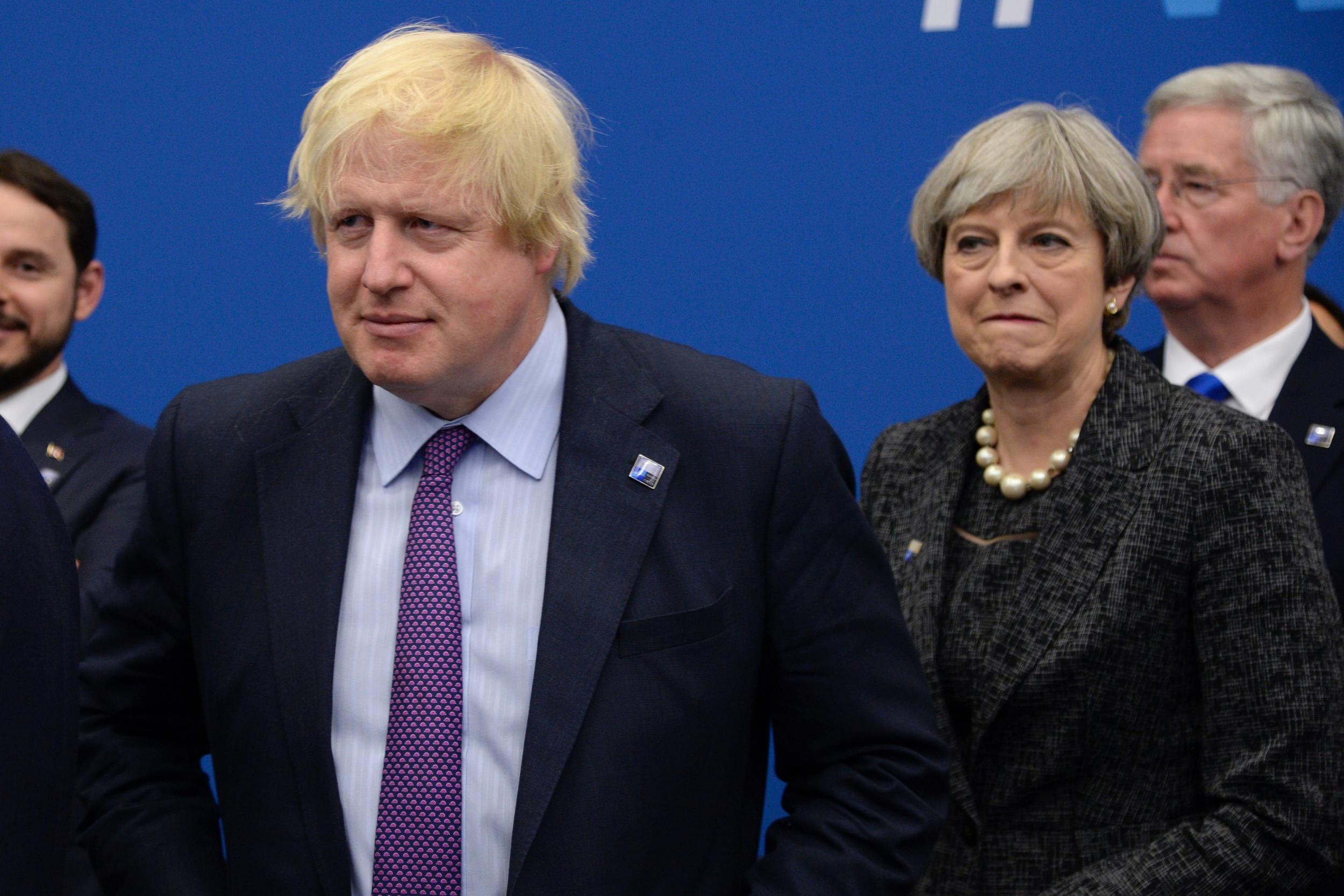Theresa May is closer to the precipice of a leadership crisis than we thought
If the Prime Minister were to be toppled suddenly the two most likely candidates chosen by MPs to replace her would be Boris Johnson and Amber Rudd


Your support helps us to tell the story
From reproductive rights to climate change to Big Tech, The Independent is on the ground when the story is developing. Whether it's investigating the financials of Elon Musk's pro-Trump PAC or producing our latest documentary, 'The A Word', which shines a light on the American women fighting for reproductive rights, we know how important it is to parse out the facts from the messaging.
At such a critical moment in US history, we need reporters on the ground. Your donation allows us to keep sending journalists to speak to both sides of the story.
The Independent is trusted by Americans across the entire political spectrum. And unlike many other quality news outlets, we choose not to lock Americans out of our reporting and analysis with paywalls. We believe quality journalism should be available to everyone, paid for by those who can afford it.
Your support makes all the difference.Are there really 48 Conservative MPs reckless enough to try to bring Theresa May down now? The Sun reports that Graham Brady, chair of the 1922 Committee that represents Tory backbench MPs, has “begged” his colleagues to stop sending him letters demanding a vote of no confidence in May’s leadership.
If he received 48 such letters, reaching the threshold of 15 per cent of Tory MPs, he would be obliged to hold a confidence vote. And if May lost it, on a simple majority of Tory MPs (159 of 316), there would have to be a leadership election, in which she would not be allowed to stand.
I have long thought that it would be quite possible to reach the first trigger, the 48 letters. Tory MPs are a variegated bunch. Some are devoted supporters of the leading contenders to replace May, namely Boris Johnson, Amber Rudd, David Davis and Michael Gove.
Others have calculated that their ambitions for preferment are best served by change, of almost any kind, rather than continuity. A surprising number think of themselves as Machiavellian schemers, and some might think they can see several moves ahead in the political chess game, especially if the pieces are thrown up in the air.
Then there are the odd ones, who do strange things for unfathomable motives, or in pursuit of grievances long forgotten by everyone but themselves, whose behaviour simply cannot be predicted.
Add them all up and you could get close to 48 quite easily.
But until three weeks ago, I would have said that, if that happened, Theresa May would win a confidence vote. The overwhelming majority of Tory MPs knew she was no good, but thought it would make matters worse to replace her. Remainers would fear a hard Brexiteer such as Johnson, Davis or Gove, while Leavers would fear a Europhile such as Rudd, and both sides were worried about the chaos of changing prime minister in the middle of Brexit talks.
So I thought it would be like John Major in 1995, who stood down to force his tormentors to put up or shut up and won 218 votes from Tory MPs but whose opponent, John Redwood, won 89 votes with a further 14 abstentions (including Edwina Currie) – the result hardly strengthened Major’s position. But now, three weeks later, I wonder if it might not be more like Iain Duncan Smith in 2003, who as leader of the opposition lost a confidence vote by 90 to 75.
It still doesn’t make much sense to change prime minister at this point. It seemed that the pragmatic majority of Tory MPs had accepted that May would see through Brexit and then the party could focus on who might be best placed to lead them against the Corbyn insurgency.
But with MPs such as Nick Boles and Nick Soames publicly exasperated by the Prime Minister’s lack of leadership, the mood seems to be shifting towards the idea that almost anyone would be better than the incumbent.
If she were to be toppled suddenly, I guess the two candidates chosen by the MPs would be Johnson and Rudd, as the best bets of the Leave and Remain sides respectively.
But who knows? The Leavers might prefer Michael Gove, the born-again eco-warrior, despite the damage to his reputation from betraying Johnson last time. I cannot see how more than a handful of MPs would seriously believe that Jacob Rees-Mogg is a good idea as prime minister, and yet he is the favourite in the “next Tory leader” market at the bookmakers.
And the Remainers might possibly go for Jeremy Hunt, as a Remainer-turned-Leaver a little in the May mould, but I would have thought his (unfair) reputation as the destroyer of the NHS would count against him in the court of public opinion.
If it were a Johnson-Rudd contest, then Johnson ought to win the final vote among the Eurosceptic party members, but his accession has been predicted so often and for so long that he is beginning to seem like the One Who Never Makes It.
You can see why Sir Graham Brady is worried. It is not necessarily in the interest of the party to have a change of leader now. Hence his warning to his colleagues to “be careful” and think of the “consequences” before putting pen to paper. He sounds a bit like the Queen in effect urging the Scottish people not to vote for independence in the 2014 referendum.
Just as for her the future of her united kingdom was at stake, from his point of view the Conservative Party could be on the brink of a disastrous gamble.
Join our commenting forum
Join thought-provoking conversations, follow other Independent readers and see their replies
Comments